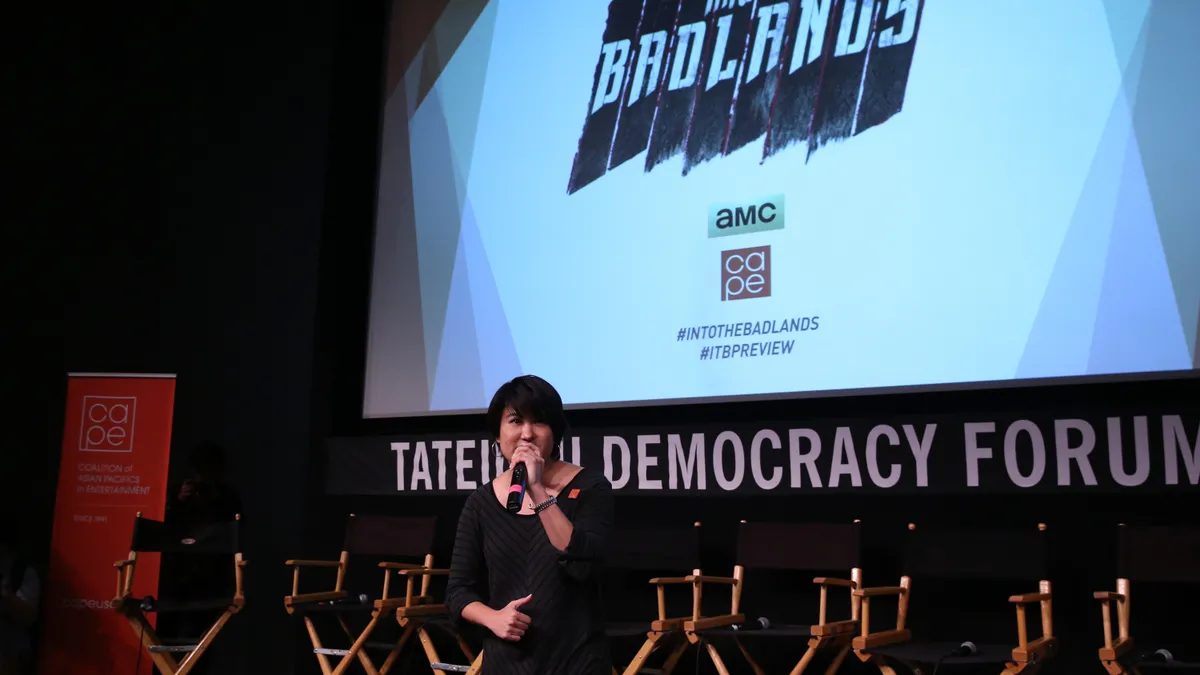Asian American creative executives, who greenlight projects and bring them to the screen in the entertainment industry, often face barriers to entry and advancement in their careers, according to an October 2023 report from the Coalition of Asian Pacifics in Entertainment and The Asian American Foundation.
When creative executives lack advancement opportunities, other industry professionals fall behind as well, and both on-screen and behind-the-scenes representation of Asian American, Native Hawaiian, and Pacific Islander, or AANHPI, workers remains inadequate, according to the report.
“Creative executives are critical in getting our stories greenlit and told with care,” Michelle Sugihara, executive director of CAPE, said in a statement. “We must protect and support their upward trajectory into the upper echelons of power within the industry.”
In a survey of Asian American creative executives, respondents said they felt like their identity was a “double-edged sword.” In particular, they said they believed they brought diversity and unique insights to the industry, but they also said they felt tokenized and that they were seen as diversity hires. They also struggled with expectations of fitting into Western norms or meeting high standards of Asian culture knowledge.
In particular, Asian American women faced challenges at the intersection of gender and ethnicity. They reported issues with sexism, age-related biases, compensation disparities and difficulties in career advancement, especially for mothers.
Overall, a majority of respondents said they experienced different treatment because of their racial or cultural background or how they look. About half of entry-level workers and 68% of senior-level staff reported differential treatment.
The report recommended opportunities for growth and advancement, such as paid internships and full-time roles with benefits, as well as support through mentorship. For instance, 52% of respondents across all ranks reported a lack of mentorship as a challenge, and 88% expressed a desire to have a mentor from their racial or ethnic background.
“We must ensure the pathways from entry-level positions to creative executive roles are supported and fortified through mentorship, leadership development and access to opportunity,” Norman Chen, CEO of TAAF, said in a statement.
“To truly feel like we belong, we must see ourselves and our stories on screen,” he said. “To do that, we must ensure that AANHPIs have the support to not only tell authentic narratives but also reach executive roles to greenlight those stories.”
Companies can account for the areas where they fall short in supporting AANHPI employees in several ways, including by offering equitable opportunities for advancement, showing support for mental health and being purposeful in diversity, equity and inclusion initiatives.
Employee resource groups can support AANHPI employees as well, particularly amid the threat of racial violence in recent years, according to a Stop AAPI Hate report. Employee-led groups can create emotional safety with others, support mental health and build inclusion.












